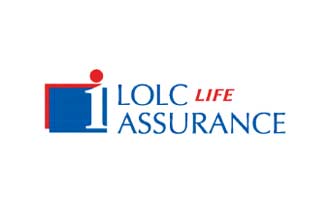Sunday Feb 22, 2026
Sunday Feb 22, 2026
Monday, 1 September 2025 14:08 - - {{hitsCtrl.values.hits}}
By Uditha Premarathna, Head of Technical /Specified Officer of LOLC Life Assurance Limited, (ACII) Chartered Insurer
 |
|
Uditha Premarathna, Head of Technical / Specified Officer of LOLC Life Assurance Limited, (ACII) Chartered Insurer |
As Sri Lanka celebrates Life Insurance Awareness Month, the conversation must extend beyond policy sales or market growth to something far more meaningful, a national shift from financial dependence to self-reliance. When trusted and understood, Life insurance has the power to transform financial uncertainty into empowerment and true independence. When trust is established, individuals are better prepared to navigate life’s uncertainties, make informed decisions, and safeguard loved ones against unforeseen events such as illness, accidents, or financial pressures. Life insurance is not merely a product to rely on when the unexpected happens, it is a strategic tool that strengthens resilience, transforms trust into financial confidence, and empowers individuals to live independently while securing their family’s future.
Q How are changes in traditional family structures shaping the need for life insurance?
For generations, Sri Lankans relied on family, neighbours, and communities for support during times of need. Parents cared for children, adult children looked after ageing parents, and communities stepped in during crises.
Today, however, smaller family units, rising living costs, and urban migration are reshaping these traditional support systems. Families and communities are increasingly less able to provide long-term stability, creating a gap that life insurance can fill. By offering structured and reliable financial protection, life insurance meets this evolving need, reducing vulnerability,
strengtheningindependence, and providing peace of mind for individuals and their loved ones.

LOLC Life Assurance, a fully owned subsidiary of the LOLC Group, plays a pivotal role in driving this transformation. Recognizing the importance of in-depth awareness and increased practical usage of life insurance, the company educates and engages communities through innovative solutions, impactful initiatives, and customer-centric services. By championing transparency, trust, and social responsibility, LOLC Life Assurance actively fosters a culture of financial independence across Sri Lanka, positioning life insurance not merely as a safety net, but as a lifelong companion in empowerment
Q How is the life insurance sector performing in Sri Lanka?
Sri Lanka has a relatively high level of spontaneous awareness about Life Insurance, and the industry has shown consistent growth over recent years. According to the Insurance Regulatory Commission of Sri Lanka (IRCSL), gross written premiums rose from Rs. 103 billion in 2020 to Rs. 183.9 billion in 2024, an impressive 78% increase in just five years. This momentum reflects the combined efforts of regulators and insurers to promote financial protection and build public trust.
Despite this growth, life insurance penetration remains below 1% of GDP, significantly lagging behind Asian peers. This gap highlights the considerable potential for industry growth and also presents opportunities to strengthen trust, positioning life insurance not as a distant safeguard, but as a proactive partner that provides ongoing support and financial freedom.
Q If awareness is comparatively high, why do people still hesitate to get life insurance?
Hesitation mainly stems from a lack of trust and confidence. While general awareness about insurance is high, in-depth knowledge of life insurance benefits, coverage, and practical usage remains limited. Policyholders often struggle with complex terms, recall incidents of mis-selling, or worry about delays in claims settlement. Many people also feel uncomfortable discussing illness or death, while some question the long-term financial stability of insurers themselves.
Additionally, life insurance is still perceived by many as a payout only upon the demise of an individual. Yet, modern policies go far beyond that, offering living benefits such as critical illness coverage, disability protection, child education funding, emergency hospital cash benefits, bill reimbursement facilities, and retirement planning. Policies can also cover loan repayments through credit protection plans, relieving families from unnecessary financial burdens.
Life insurance can further support estate planning while offering currently available tax-free benefits at maturity or upon death, helping individuals secure their financial well-being. These advantages reframe life insurance as a trusted financial partner that supports individuals throughout their lifetime, not just after their passing.

Generation Z, now entering the workforce, has consistently valued independence and empowerment, and this perspective shapes how they view financial products, including insurance. They see insurance not only as protection but also as a tool to maintain control over their financial lives. This creates a dual responsibility for insurers: to provide clarity and stability for older generations while offering innovative, personalized, and tech-driven solutions that resonate with younger customers. By embracing this approach, insurers can position life insurance as a tool for financial freedom rather than a source of fear
QHow is Sri Lanka’s financial culture shifting?
Traditionally, Sri Lankans relied on family and community networks for financial security. Today, however, rising living costs, smaller households, and urban migration are pushing people to seek more structured financial solutions. Life insurance is stepping into this role as a strategic partner, supporting families with long-term planning. Whether it is funding children’s education, protecting a business, or securing retirement, insurance enables individuals to build resilience and independence. This cultural shift is not uniform across society; it is shaped by different generations.
QHow are different generations shaping the future of life insurance?
Generational attitudes toward insurance vary significantly. Baby Boomers and Generation X often relied on employer pensions or traditional savings and viewed insurance as a formal obligation. Millennials shifted toward more flexible, digital, and investment-linked products, combining convenience with returns.
Generation Z, now entering the workforce, has consistently valued independence and empowerment, and this perspective shapes how they view financial products, including insurance. They see insurance not only as protection but also as a tool to maintain control over their financial lives. This creates a dual responsibility for insurers: to provide clarity and stability for older generations while offering innovative, personalized, and tech-driven solutions that resonate with younger customers. By embracing this approach, insurers can position life insurance as a tool for financial freedom rather than a source of fear.
QWhat is being done to strengthen trust in the industry?
The IRCSL plays a central role in modernizing and safeguarding the sector by regulating, guiding, and overseeing insurance providers. Stronger consumer protection regulations, enhanced Anti-Money Laundering (AML) and Know Your Customer (KYC) measures, and broader complaint-handling mechanisms have been introduced. Digital e-policies are making access easier, while microinsurance expands coverage to underserved communities. Additionally, ESG-focused products align the industry with global sustainability goals, ensuring that life insurance evolves responsibly.
These reforms reinforce accountability and transparency, building confidence in the system. But trust is not the responsibility of regulators and insurers alone; it also requires active participation from the public.
QWhat role should the public play in building trust?
Trust is a shared responsibility. Policyholders can contribute by clearly identifying their financial goals, openly discussing them with family, and ensuring that their chosen protection aligns with their ability to pay premiums. It is equally important to be fully informed about policy terms and the benefits offered during discussions with the insurance provider. Choosing licensed insurers and agents, making accurate disclosures, and using digital tools to monitor policies are also vital steps.
By taking these actions, individuals not only safeguard their own interests but also help foster a culture of financial literacy, resilience, and independence. This makes it easier for society to embrace life insurance as a critical component of modern financial security.
QIn conclusion, why does life insurance matter now more than ever, and how does LOLC Life Assurance lead this transformation?
Life insurance is far more than a financial product; it is both a promise for tomorrow and a source of confidence today, a trusted partner in empowerment. It enables individuals to live independently, ensures that loved ones are protected, and provides peace of mind amid life’s uncertainties.
As Sri Lanka observes Life Insurance Awareness Month, the focus must extend beyond awareness to building trust, confidence, and independence. With sustained industry growth, regulatory reforms, and evolving generational expectations, life insurance has become a lifelong companion in resilience, empowerment, and dignity.
LOLC Life Assurance, a fully owned subsidiary of the LOLC Group, plays a pivotal role in driving this transformation. Recognizing the importance of in-depth awareness and increased practical usage of life insurance, the company educates and engages communities through innovative solutions, impactful initiatives, and customer-centric services. By championing transparency, trust, and social responsibility, LOLC Life Assurance actively fosters a culture of financial independence across Sri Lanka, positioning life insurance not merely as a safety net, but as a lifelong companion in empowerment.